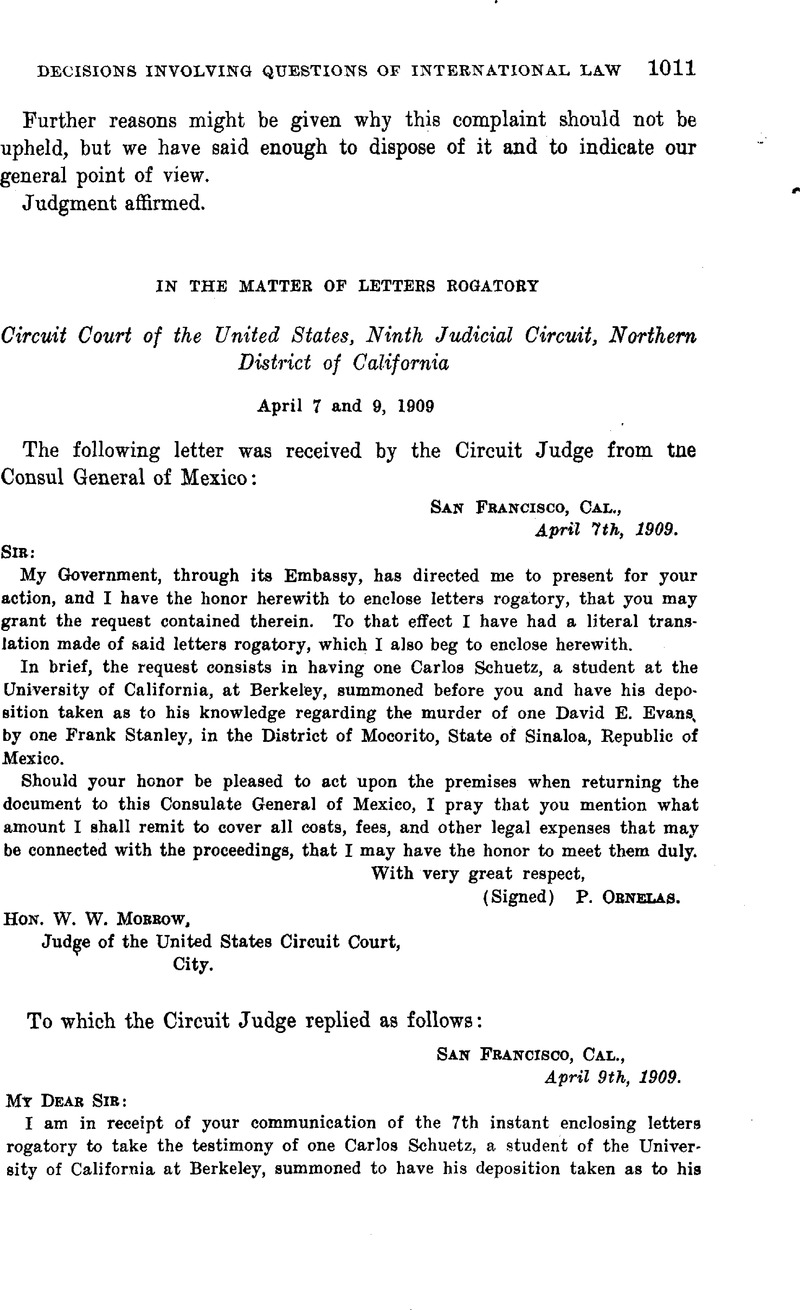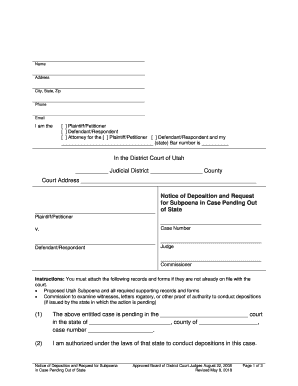Finest Practices for Drafting Reliable Letters Rogatory for Legal Issues
Letters Rogatory Explained: Facilitating Legal Cooperation In Between Countries

Interpretation of Letters Rogatory
Letters rogatory are formal demands made by a court in one territory to a court in one more jurisdiction, seeking aid in obtaining proof or testament for a legal action. This procedural system is important in the context of global legislation, where lawful systems might differ, and cross-border participation is necessary. Letters rogatory help with the event of details that may be vital for adjudicating situations, specifically in instances involving complex global concerns.
Generally, these demands emerge in civil, criminal, or management matters where a celebration needs proof that lies outside the territory of the asking for court. The letters work as a means to guarantee that the principles of due process are maintained, enabling courts to accessibility proof that may otherwise remain inaccessible because of geographical or legal barriers.
Using letters rogatory is governed by global treaties, bilateral contracts, or domestic regulations, which delineate the treatments and obligations of the courts involved. It is crucial to note that the implementation of such demands is not assured; they rely on the regulations and methods of the jurisdiction receiving the letter. Hence, letters rogatory are an essential device for fostering lawful participation and guaranteeing justice throughout borders.
The Process of Issuing Letters Rogatory
Issuing letters rogatory entails a structured process that guarantees compliance with both domestic and global legal criteria. Originally, the requesting celebration, commonly a court or lawful authority, drafts an official demand outlining the nature of the support looked for, the proof or information needed, and the legal basis for the demand. This record has to be accurate to facilitate understanding by the international territory.

The next action involves sending the letters rogatory to the marked foreign authority. This is typically done via diplomatic channels or international lawful aid frameworks, making sure that the demand is gotten and acknowledged by the international court. The foreign court after that processes the request according to its very own legal procedures, eventually reacting to the requesting event with the desired info or proof, therefore assisting in international lawful cooperation.
Significance in International Law
The value of letters rogatory in global legislation can not be overemphasized, as they function as an important mechanism for judicial participation throughout boundaries. These formal ask for help in legal issues enable courts in one jurisdiction to seek info, proof, or the existence of witnesses from one more territory, thus assisting in the administration of justice in global situations.
Letters rogatory are particularly important in the context of globalization, where lawful disputes often cover multiple countries. They make it possible for the collection of evidence that could otherwise be hard to reach, making sure that legal process are notified and reasonable. By fostering collaboration in between judicial systems, letters rogatory aid copyright the guideline of law and promote common respect among countries.
In addition, using letters rogatory demonstrates a dedication to international standards and principles of cooperation, showing the interconnected nature of contemporary lawful methods. It illustrates the significance of sticking to established procedures and treaties, such as the Hague Convention, which supplies a framework for these demands - Letters rogatory. Eventually, letters rogatory improve the efficacy of legal processes, making certain that justice is not prevented by geographical boundaries
Challenges and Limitations
In this spite of their relevance, letters rogatory face numerous challenges and constraints that can hamper their effectiveness. One main problem is the differing lawful frameworks and procedures across jurisdictions, which can cause misunderstandings and hold-ups in the implementation of demands. Various nations may have distinctive needs here are the findings for the legitimacy of letters rogatory, making complex the procedure better.
Additionally, the commonly lengthy nature of global legal teamwork can hinder timely access to evidence or witnesses. This hold-up may adversely impact lawful process or recurring examinations, specifically in cases needing urgent action. The absence of resources and training in some jurisdictions can result in not enough handling of requests, leading to insufficient or inadequate actions.
Nations with less formal lawful systems might struggle to comply with the procedural roughness anticipated in letters rogatory. These obstacles require continual dialogue and reform to boost the efficiency of letters rogatory in lawful collaboration.
Study and Examples

Conversely, obstacles can develop, as seen in a situation including a European nation seeking proof in a continuous criminal matter from a non-EU country - Letters rogatory. The process was postponed due to administrative difficulties and differing lawful criteria, ultimately impeding the examination
These examples highlight that while letters rogatory can help with worldwide participation and expedite legal proceedings, they additionally highlight the demand for clear interaction and understanding of legal frameworks between nations. Such study emphasize the significance of refining this tool to improve effectiveness and efficiency in global legal matters.
Conclusion
In summary, letters rogatory offer as an important system for helping with legal participation in between countries, guaranteeing the collection more helpful hints of proof and testament throughout territories. Their significance in international law can not be overstated, as they advertise due procedure and improve the performance of cross-border legal process.
Letters rogatory are official requests made by a court in one jurisdiction to a court in one more jurisdiction, looking for aid in obtaining proof or testimony for a lawful proceeding. The asking for party, generally a court or lawful authority, prepares a formal request describing the nature of the support looked for, the evidence or info required, and the legal basis for the request. The foreign court then processes the request according to its own lawful procedures, inevitably responding to the requesting event with the in-demand details or evidence, therefore facilitating worldwide legal teamwork.
Moreover, the use of letters rogatory shows a commitment to international standards and principles of teamwork, mirroring the interconnected nature of contemporary lawful techniques.Worldwide legal participation through letters rogatory is not without its real-world ramifications, as highlighted by numerous situation research studies that highlight both successes and challenges.